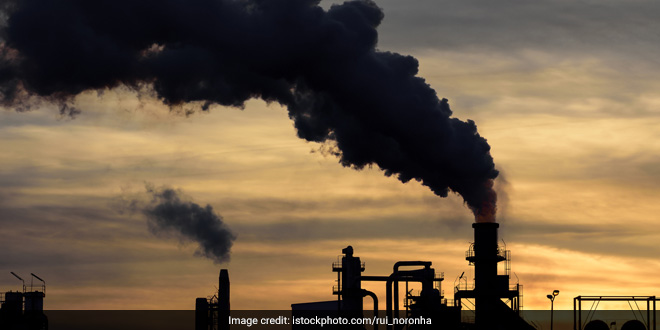New Delhi: The Delhi Pollution Control Committee (DPCC) has issued a notification with a list of fuels permissible for industrial use within the National Capital Territory of Delhi, a move which has been hailed by the Centre for Science and Environment.
All existing industrial units and commercial establishments who are currently using fuels that are not approved under the notification have been asked to switch over to approved fuels within 90 days.
Also Read: Air Pollution: Delhi Government Approves Proposal To Conduct Round-The-Year Air Quality Study
All other fuels will have deemed unapproved and so disallowed for use in NCT of Delhi, the notification read.
Anumita Roychowdhury, executive director-research and advocacy, Centre Science and Environment (CSE), said,
Dust particles in the air get coated with toxic substances from combustion and can go deep into the lungs. Cleaner fuels for combustion are an important step forward to reduce the toxicity of emissions.
Clean fuels not only improve the efficiency of emissions control systems, but also reduce emissions of toxic compounds and lower the risk to human health. CSE has been advocating for this notification for some time now.
Also Read: No Time To Rejoice, Planning Needed For Winter: Experts On Air Quality
The new notification has permitted the fuels including Bharat Stage VI compliant petrol and diesel with 10 ppm sulphur, Liquid Petroleum Gas, Natural gas/Compressed Natural Gas (CNG), Aviation turbine fuel, Firewood for crematoriums and for other religious purposes, Wood charcoal for Tandoors and grilles of hotels/restaurants/banquet halls/eateries having emission channelization/control systems and Biogas.
According to the notification, coal with low sulphur (less than 0.4 per cent) will be permitted for use only in thermal power plants.
“This notification, thus, virtually eliminates the use of coal from everything except in power plants, where coal with less than 0.4 per cent sulphur will be permitted. But Delhi has also taken the decision to shut down its coal power plants, including the Badarpur plant.
With coal and other dirty fuels like petcoke and furnace oil banned, industrial units will have to shift to cleaner alternatives such as piped natural gas, electricity or BS-VI diesel. It is encouraging to note that use of natural gas by industries has expanded now in Delhi, Ms Roychowdhury said.
This new notification is an amendment of the original list of approved fuels notified by the Delhi government on August 27, 1996, a decision which was precipitated by the widespread use of dirty domestic and industrial fuels in the city.






























